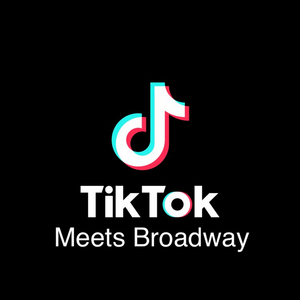Student Blog: Broadway Marketing Meets TikTok
A natural method to expand the market of ticket buyers and reach tourists before they come to New York.

Any avid theatergoer who uses TikTok has seen the Roxanne Opt-Up singing challenge from Moulin Rouge. Broadway TikTok has even reached non-musical theatre fans including pop stars, such as Lizzo, who have posted their own covers of Roxanne. In fact, the official Moulin Rouge TikTok encouraged Lizzo to post a second version of the song an octave up, then they created TikToks of the cast doing the viral "About Damn Time" dance. As a result of the trend, the official Moulin Rouge TikTok posted a professional recording of Aaron Tveit singing his famous opt-up. A few years ago, Broadway social media accounts rarely posted performance videos except for little clips meshed into advertisements. However, we are now seeing a shift in Broadway's digital marketing to include longer show clips, to encourage fans to post covers, and to target users of each social media platform differently.
Perhaps the best explanation for this shift is society's reliance on social media and the rise of TikTok. Many theatergoers follow social media accounts of the shows they love. By encouraging these theatergoers to engage with posted content or to post song covers, these social media accounts reach a much wider audience than targeted advertisements, print advertisements, and television advertisements. When a TikTok user comments on a video, the algorithm assumes anyone who follows them would also be interested in the video and shows it on their For You Page. This can also happen when a TikTok user likes a video or is in another TikTok user's contacts. Similarly, any comment a Twitter user makes on a post will show up as an original tweet in the timeline of anyone who follows them.
The algorithm's logic for showing videos that one TikTok user interacts to another who is in their social network is simple: homophily. People tend to associate themselves with people who have something in common. While this is true in many cases, it is not a universal rule, so people may see a video they never had interest in simply because a friend interacted with it. Nevertheless, the video may capture a user's interest and send them down a rabbit hole of looking at similar videos.
Broadway TikTok accounts likely use this concept to justify posting exclusive show clips or engaging in trends related to the show. It is a natural method to expand the market of ticket buyers and reach tourists before they come to New York. Essentially, it is a larger scale word of mouth effect that does not rely on recent ticket buyers to tell all their friends about the show. Instead, by interacting with a post, others learn about the show who may not have ever known it existed.
Just like how we saw Broadway lotteries shift from in-person lotteries to digital lotteries, we will soon see the majority of Broadway marketing focused on social media content creation. Advertisements and social media posts are starting to become indistinguishable from each other, but this situation benefits both advertisers and social media users. Focusing on social media content creation will increase the reach of advertisements which will increase ticket sales while fans obtain more content to obsess over.
Videos


